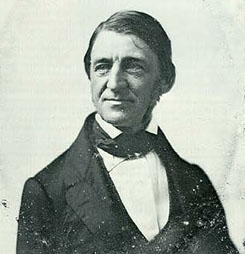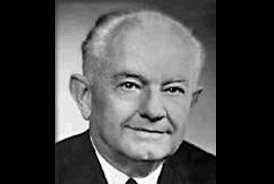New Thought is a philosophy that holds that Infinite Intelligence, or God, is all that there is. This Perfect Power is expressing in and as everyone all the time. It states that the true nature of human selfhood is Divine, and that every person has access to the Indwelling God. The New Thought movement is a philosophical movement which originated in the 19th century, and exists today in the form of a loosely allied group of religious denominations, organizations, authors, philosophers and individuals who share these beliefs, including Centers for Spiritual Living, Unity, Alliance for Global New Thought, International New Thought Alliance, Christian Science, Divine Science and more.

A primary early influence on the development of New Thought was American Transcendentalist Ralph Waldo Emerson (1803-1882), who taught that there is a higher reality and greater knowledge than that which is manifested in human mind. Emerson’s writings greatly impacted writers like Judge Thomas Troward and directly contributed to the creation of what is now the Unitarian Universalist Church.
Another major early influence on the development of New Thought was Phineas Parkhurst Quimby (1802–1866), an American mesmerist and healer. Quimby developed a belief system which included the tenet that illness originated in the mind as a consequence of erroneous beliefs and that a mind open to God's wisdom could overcome any illness. One of his patients was Mary Baker Eddy, who combined Quimby’s healing practices with ideas from Mental Science and other philosophies to create Christian Science.
Emma Curtis Hopkins (1849-1925) began as a student of Mary Baker Eddy, but soon established herself as a powerful teacher, author and metaphysician in her own right. Her students included such luminaries as Charles and Myrtle Filmore (founders of Unity), Melinda Cramer and Nona Brooks (founders of Divine Science) and Ernest Holmes (founder of what is now Centers for Spiritual Living).
Ernest Holmes (1887-1960) developed the Science of Mind, the teaching extolled by Centers for Spiritual Living. Born in 1887, Holmes was a lifelong learner, read constantly and was deeply interested in the similarities among the religions of the world. He cited the works of Ralph Waldo Emerson, Judge Thomas Troward and his teacher Emma Curtis Hopkins among his greatest influences. Holmes published his first book, Creative Mind, in 1919 and published his seminal book The Science of Mind in 1926, with many more to follow. The Institute of Religious Science was founded in 1927 in Los Angeles, where Holmes trained practitioners and ministers in the tenants of Science of Mind. In the same year, Science of Mind Magazine was launched, and is still in circulation today.

In the 1950’s there was a split into two organizations, the United Church of Religious Science (which continued to be headed by Ernest Holmes) and Religious Science International. Holmes made his transition in 1960. In 2011, UCRS and RSI came back together to form one united organization, the Centers for Spiritual Living. Today, there are more than 400 Centers for Spiritual Living communities, teaching chapters and study groups in over 30 countries.
